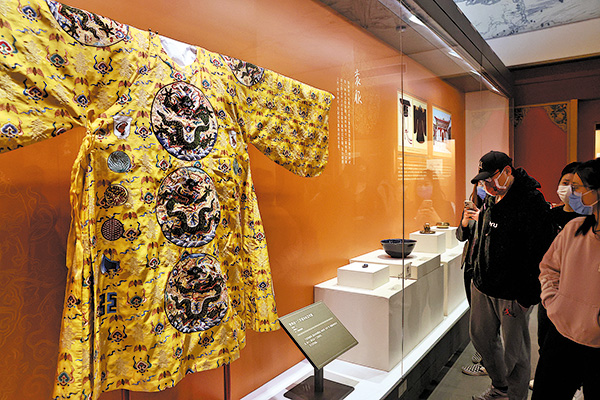

Among the exhibits are gold dining ware, miniature furniture made of bronze, coins inscribed with auspicious words to "keep off the devil", and jade ritual artifacts Wanli once used. Nonetheless, what he aspired for was probably more than his own peaceful resting place. A giant blue-and-white porcelain jar, with a diameter of more than 70 centimeters, expresses such hope. Grease was found inside the jar, indicting it was used to hold a lamp.
In Chinese, ming means "brightness". Through the so-called long-burning lamps, Wanli may have wished for his dynasty to forever live up to its name.
History failed Wanli's hope. The Ming Dynasty came to its end 24 years after his death — his grandson, Zhu Youjian, committed suicide the day the Forbidden City fell. Amid inflation, famine and chaotic wars, aspiration for dynastic longevity and lasting prosperity became a reverie.
"People may criticize Emperor Wanli for his role in the fall of the Ming, but his reign briefly reversed the declining tendency of the dynasty," Sun Xiaobing, deputy director of Art Exhibitions China, says. "Its inclusiveness and vivid urban life impress today's people and inspire us to imagine. "
As many historians note, Wanli's era was a time of change.
Zhang Juzheng, a head politician, led reform in economic fields and official evaluations that had lasting influence later. Xu Xiake, a pioneering travel writer, toured the country for decades and presented a milestone geographical treatise.